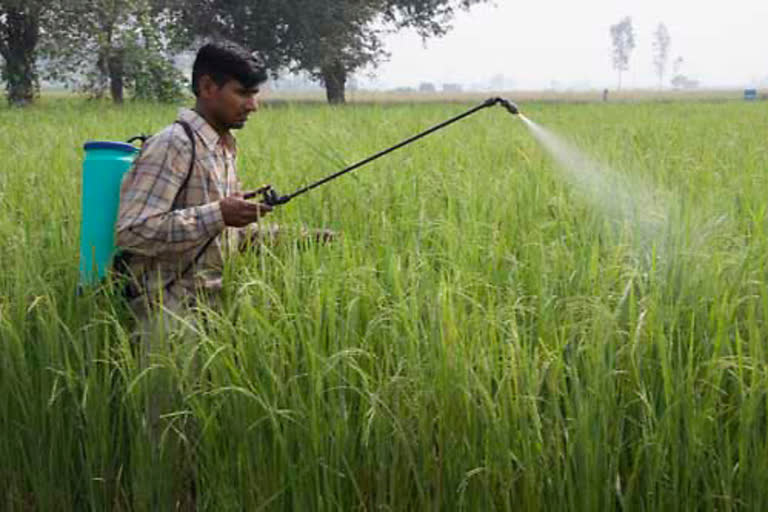Hyderabad: The demon called the lethal pesticide residues has been haunting humanity with its deadly fangs. Strongly advocating measures for the protection of the soil biodiversity, the United Nations has been observing ‘December 5’ as World Soil Day since the past seven years.
The callous and disregardful inaction on the part of the governments has been the cause of several human health crises.
In the latest health crisis caused by pesticide residues, hundreds of people were hospitalized at Eluru town in Andhra Pradesh. Though mysterious symptoms prompted their hospitalization, medical experts have opined that the illness of victims was caused by high levels of lead, nickel and mercury in their blood samples.
There cannot be a greater tragedy than the fact that the chemical residues accumulated in food grains and vegetables are posing a serious threat to public health.
Last October, scientists from ICRISAT had stated that excessive use of chemical pesticides in vegetable farming is nothing short of murdering the consumers. While this being so, the Union Agriculture Ministry has issued shocking orders asking the concerned officials to refrain from making public the residue levels in vegetable samples.
Last May, the Center had promulgated the draft amendment act calling for a ban on the use of 27 chemicals in farming. But it backtracked from the stand following pressure from pesticide manufacturers.
In a submission made before the National Green Tribunal, the Union Ministry of Agriculture has stated that no harm would ensue if pesticides are utilized as per the limits permitted by the registration committee.
In the month of June last, the Tribunal had called for action to prevent the ill-effects of pesticides on soil fertility and public health. Inaction on this front is leading to major crises.
Between the years 1975 and 2000 in Kerala, a State government agency had resorted to the aerial spray of Endosulfan to protect the cashew farms in 12,000 acres located in 20 village panchayats of Kasaragod district.
This extensive spraying of pesticide had resulted in the death of 1000 people and psychological derangement of over 5000. Delivering the verdict on this case in 2017, the Supreme Court has directed payment of a compensation of Rs 500 crore and lifetime free medical aid to the victims.
The nation was shocked when 23 children died in Bihar after having mid-day meal in which residues of monocrotophos were found. Similar was the reaction when 50 farmers died while spraying pesticide in Yavatmal district of Maharashtra about three years ago.
There are regulatory mechanisms to ensure control in the use of pesticide in a manner that is not harmful to human and animal health. However, the failure of these mechanisms is proving to be a bane to soil fertility and human health. Several pesticides banned in foreign countries are still being used in India. The number of such pesticides being utilized in India was 33 in the year 2001. Their number climbed to 67 by the year 2011.
In response to the recommendation made by Dr Anoop Verma Committee, the Center thought of banning 27 pesticides. It backtracked from the idea after pesticide manufacturers warned that the ban could impose an additional financial burden on farmers to purchase imported alternatives. They also warned that the ban could lead to a situation where Indian manufacturers would lose to China a Rs 12000 crore domestic market for those pesticides.
The Pesticide Act of 1968 did not in any way contribute to the promotion of safe and secure pesticide culture in the country’s farming activities. Why is the Center, which is forcing on farmers the venomous farm reform laws they are outrightly rejecting, not making moves on a war footing to eradicate pesticide residues that are harmful to public health? Public health will not be safe unless a farm revolution is unfurled by nudging the farmers to alternatives like pest management techniques, biopesticides and low concentration pesticides.
ALSO READ: Haryana, Punjab farmers in a quandary over pesticide ban



